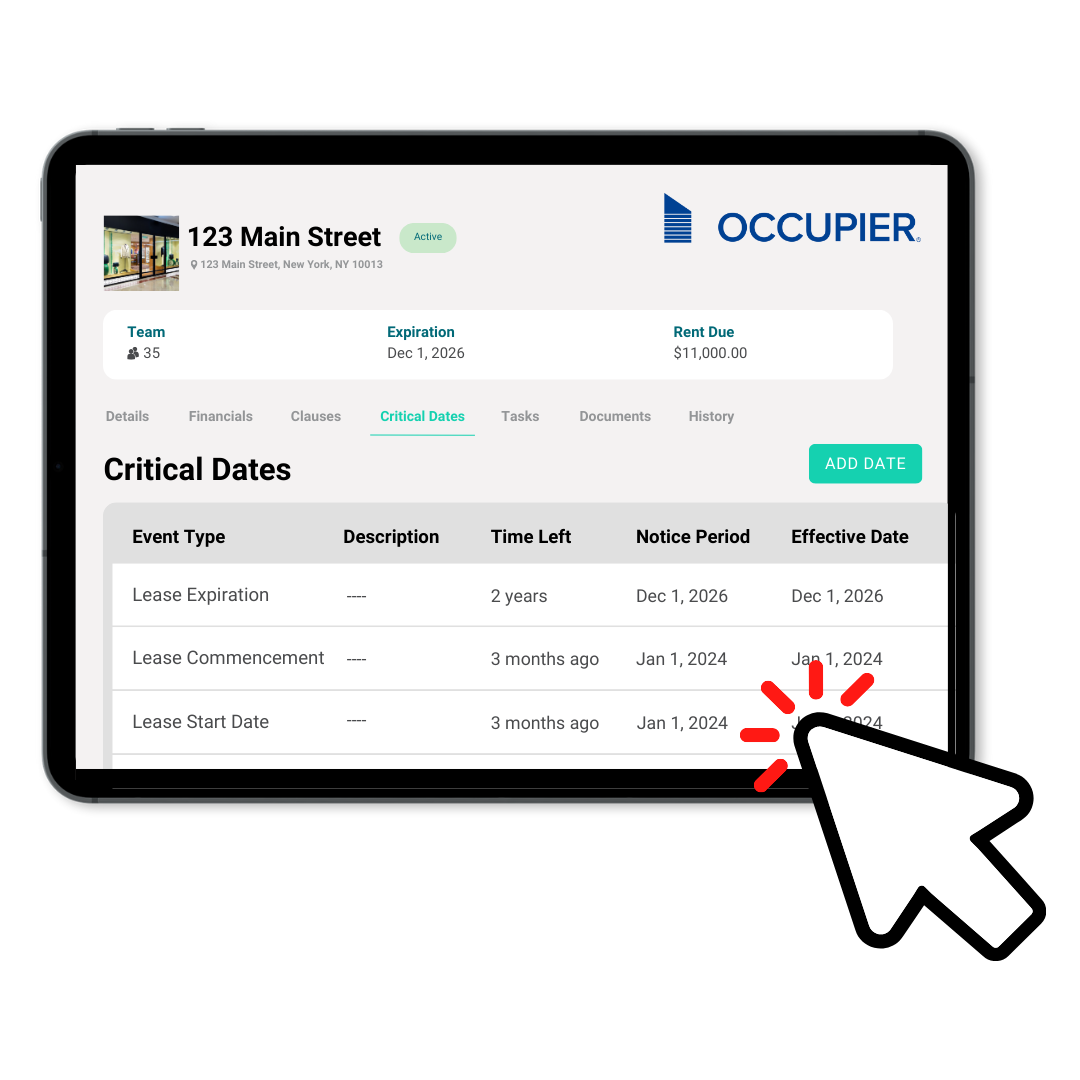Contract Management for Real Estate Teams
Last Updated on April 26, 2024 by Morgan Beard
Efficient contract management is mission-critical to the success of any real estate team. From lease agreements to property purchases, real estate teams rely on effective contract management to ensure smooth operations, data transparency and minimize risks. In this blog post, we will explore the central theme of contract management for real estate teams.
Understanding Contract Management in the Real Estate Industry
Contract management refers to the process of efficiently handling contracts throughout their lifecycle, from creation and negotiation to execution and renewal. In the context of real estate teams, contract management specifically focuses on managing contracts related to property transactions, such as leases, purchase agreements, and vendor contracts.
Effective contract management enables real estate teams to establish strong relationships with clients, vendors, and other stakeholders. It ensures transparency, reduces legal risks, and streamlines administrative processes. Let’s take a closer look at the central theme of this article — contract management for real estate teams — and explore its essential components.
Contract Creation and Negotiation
The first step in contract management for real estate teams is the creation and negotiation of contracts. This involves drafting clear and concise agreements that outline the terms and conditions of the transaction. Real estate professionals must pay attention to legal and regulatory requirements, as well as industry practices, when creating contracts.
Negotiation plays a crucial role in contract management. It involves discussions between the parties involved to reach mutually acceptable terms. Effective negotiation ensures that contracts meet the needs and expectations of all parties while protecting the interests of the real estate team.
Contract Execution and Monitoring
Once the contracts are created and negotiated, the next step is their execution and monitoring. Real estate teams must ensure that all parties involved sign the contracts and fulfill their obligations as agreed upon. This includes verifying the accuracy of documentation, ensuring compliance with legal requirements, and tracking important dates and deadlines.
Monitoring contracts throughout their lifecycle is essential to identify any potential issues or risks. Real estate teams need to track key milestones, such as rent payments, lease renewals, and property maintenance obligations. By closely monitoring contracts, teams can proactively address any concerns and mitigate risks before they escalate.
Document Management and Organization
Efficient document management is a crucial aspect of contract management for real estate teams. With a large volume of contracts, leases, and other legal documents to handle, proper organization and storage are essential. Real estate teams should establish a centralized system for storing and accessing contracts and related documents.
Digital platforms and cloud-based solutions can provide real estate teams with the tools they need to efficiently manage and organize documents. These platforms offer features like version control, document sharing, and automated notifications, enabling teams to keep track of contract revisions, collaborate effectively, and maintain a complete audit trail.
Compliance and Risk Management
Compliance with legal and regulatory requirements is essential for real estate teams. Failing to adhere to legal obligations can lead to costly disputes, needing legal team support. Contract management plays a vital role in ensuring compliance by keeping track of multiple documents and building contract workflows that ensure the contracts align with the applicable laws.
Risk management is another critical aspect of contract management for real estate teams. By identifying and assessing risks associated with contracts, teams can implement strategies to mitigate potential issues. This includes reviewing contractual terms, conducting due diligence, and implementing risk management protocols.
Benefits of Effective Contract Management for Real Estate Teams
Implementing robust contract management for real estate teams is important for tracking lease agreements, contract amendments, letter’s of intent, business proposals or lease RFPs. A user-friendly interface with core features like contract automation, smart storage, robust security features, contract reviews, workflow reviews and task management is an intuitive way to access contract data. A central repository with an intuitive interface that can provide valuable insights, sutom reports, and real-time updates across the entire contract lifecycle. Let’s explore some of the essential features of tracking contract software built specifically for commercial real estate teams.
- Minimized Legal Risks: Effective contract management helps real estate teams identify and address potential legal issues before they escalate. By staying compliant with legal requirements and having well-drafted contracts, teams can minimize the risk of legal disputes and associated costs.
- Improved Efficiency: Organized and streamlined contract management processes reduce administrative burdens and enhance efficiency. Real estate teams can save time and resources by automating tasks, tracking contract milestones, and accessing information quickly.
- Enhanced Collaboration: Contract management platforms facilitate collaboration among team members, enabling seamless communication and document sharing. This promotes better collaboration across departments and ensures everyone is on the same page.
- Stronger Relationships: Well-managed contracts contribute to building and maintaining strong relationships with clients, vendors, and other stakeholders. Clear and fair agreements establish trust and transparency, fostering positive relationships in the real estate industry.
- Cost Savings: Efficient contract management helps teams identify cost-saving opportunities, negotiate more favorable terms, and avoid unnecessary expenses. By keeping track of financial obligations and contract terms, real estate teams can optimize their financial performance.
Contract Management Use Cases for Real Estate Teams
Real Estate Lease Management
Streamline your lease management processes with advanced contract management solutions tailored for real estate teams. From initial lease negotiations to renewal and termination, efficiently organize, track, and manage all lease agreements in one centralized platform. Access key lease terms, critical dates, and compliance requirements effortlessly, ensuring transparency and reducing the risk of oversights. With automated notifications and reminders, stay ahead of lease deadlines and make informed decisions to optimize your real estate portfolio.
Lease Accounting Workflows
Take control of your lease accounting practices with robust contract management tools designed to meet the unique needs of real estate professionals. Seamlessly integrate lease data into your accounting systems, ensuring compliance with accounting standards such as ASC 842 and IFRS 16. Gain insights into lease liabilities, lease payments, and lease asset valuations, enabling accurate financial reporting and strategic decision-making. Simplify lease classification, amortization, and expense recognition processes, minimizing manual errors and enhancing overall efficiency.
Transaction Management
Empower your real estate team with cutting-edge transaction management solutions to streamline the entire real estate deal lifecycle. From acquisitions and dispositions to leasing and subleasing transactions, manage every deal stage with ease and precision, tracking new documents and closing deals. Collaborate seamlessly with stakeholders, track deal progress, and centralize document management to ensure compliance and mitigate risks. Leverage customizable workflows and reporting tools to optimize deal structuring, negotiation, and execution, driving faster time-to-market and maximizing deal value.
Task Management
Enhance productivity and accountability within your real estate team with intuitive task management capabilities integrated into your contract management system. Assign tasks, set deadlines, and track progress across all stages of contract lifecycle management. Prioritize critical activities, allocate resources efficiently, and monitor task dependencies to ensure timely completion of key milestones. With customizable dashboards, custom reports, task lists and advanced analytics features, gain real-time visibility into task status and performance metrics, enabling proactive decision-making and continuous process improvement.
Contract Management Wrap Up
Contract management for real estate teams is undeniably a crucial aspect of cross-departmental operations. By implementing effective contract management practices, real estate teams can ensure compliance, mitigate risks, and streamline their operations. In this blog post, we explored the central theme of contract management for real estate teams, discussing its key components and benefits. As the real estate industry continues to evolve, embracing efficient contract management practices is essential for success.

Product Tour
Take a self-guided tour and see how the fastest-growing commercial tenants leverage Occupier for lease management & lease accounting.
